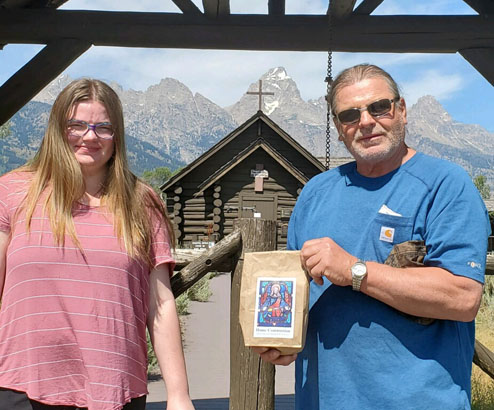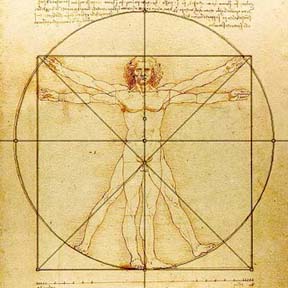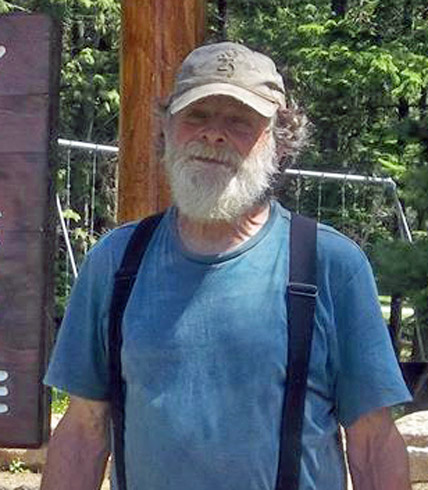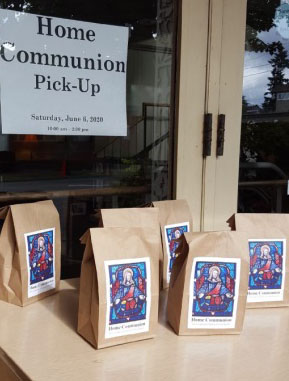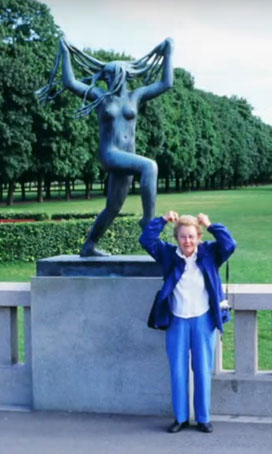September 2020
|
Do you believe that it was God’s “definite plan” to have
Jesus killed on the cross “by the hands of lawless men”
(Acts 2.23)? And do you believe that this crucifixion
was needed in order to save us from God’s wrath (Romans
5:9)?
Many American Christians don’t believe this
because it makes God look bad and it does nothing good
for any of us. Instead of God’s wrath being overcome or
ap-
peased when Jesus is punished in our place on the cross,
we are instead won back by God when he simply displays
his general “affection and conciliation” apart from any
cross (Ann Douglas,
The Feminization of American Culture,
1979, p. 125).
But too much of the Bible opposes this view.
Peace between sinners and God is only established by
“the blood of Christ’s cross” (Colossians 1:20). This
peace only comes “through our Lord Jesus Christ” (Romans
5:1). Only his death can do what the “law weakened by
the flesh, could not do” (Romans 8:3). The only way this
legal bond that stood against us because of our sin
could be canceled, is by nailing it to the cross
(Colossians 2:14).
Early on, at the beginning of the church,
Christians became enemies of the cross of Christ –
replacing its saving role with simple human pleasures
(Philippians 3:18). Pray on September 14, Holy Cross
Day, that this never happens to any of us.
Pastor Marshall
|
|
PRESIDENT'S REPORT....by
Cary Natiello
Our Midyear Congregational meeting was
successfully held Sunday August 2, at 11 a.m. via ZOOM.
We had 24 members attend.
A question came up at the meeting about the criteria the council
is following for resuming indoor worship services.
Specifically, what does the word “minimal” mean in the
criteria that reads, “Newly
diagnosed COVID-19 cases during the prior two weeks in King
County is minimal and
declining.” The
question was what number we are using to define minimal?
The answer was that we did not want a specific number
because we didn’t want to be tied to a specific number when
assessing if we have met that criteria.
Instead, a super majority of Church Council members will
need to agree on if newly diagnosed COVID-19 cases during the
prior two weeks in King County is
minimal.
In other words, we will know it when we see it.
Hopefully that makes sense.
As of mid-August, the only one of our five criteria that
we can successfully meet is #1, “State and local governments
allow indoor religious gatherings of 50 people or less.”
Numbers 2 – 4 we cannot meet at this time.
Scott Schorn gave an update on the Saint Nicholas Faire at the
mid-year meeting.
More information will be provided in the weeks ahead.
But the main things to be aware of now are that the Saint
Nicholas Faire auction will be conducted virtually and the
proceeds will again go to the West Seattle Food Back and Help
Line. Stay tuned.
As of the end of July, our year-to-date giving was about
$156,000 against a budget target of about $135,600.
Through July our devoted congregation has continued to
support our wonderful church.
We all know that there will be a day when we can all
worship again together.
What a glorious celebration that will be.
Thank you all for your continued support of our church
during these trying times.
You are all very special.
I was reading an article which helped put COVID-19 into
perspective. It
reported that, in
recent years, a little more than 40,000 women have died of
breast cancer every year and close to
85,000 Americans die from diabetes
every year.
Prostate cancer kills 33,000 men every year.
All this means that COVID-19 has already killed more
people in 2020 than breast cancer, prostate cancer, and diabetes
combined. I
thought this might be worthwhile for us to all realize the
seriousness of this pandemic and that maybe these numbers might
help you when talking with others who pooh-pooh how serious it
really is. Please be safe, stay healthy, wear a mask when in public, pray for each other and pray that soon we will be able to come together in our beautiful church and worship our Lord together.
Rollie & Silvie
Storbakken, Moose, WY, Chapel of the
Rollie is holding
his Home Communion from church.
|
|
The Body
“I am fearfully and wonderfully
made.”
(Psalm 139:14)
“You
don’t know how the body is formed in the mother’s womb.”
(Ecclesiastes 11:5)
The Stomach
“Nearly
everyone equates the location of the stomach with the belly, but
in fact it is much higher up and markedly off center to the
left. It is about ten inches long and shaped like a boxing
glove. The wrist end, where the food enters, is called the
phlorus, and the fist part is the fundus. The stomach is less
vital than you might think…. It contributes a bit to digestion
both chemically and physically, by squeezing its contents with
muscular contractions and bathing them in hydrochloric acid, but
its contribution to digestion [isn’t] vital. Many people have
had their stomachs removed without serious consequences…. The
stomach of a big dog will hold up to twice as much food as yours
does…. One thing the stomach does do is kill off many microbes,
by soaking them in hydrochloric acid. Without your stomach, a
lot more of what you ate would kill you…. It is a miracle that
any microbes get through, but some do, as we all know to our
cost…. Every year three thousand people… die of food poisoning
in the United States, and around 130,000 are hospitalized….
[There’s an estimated] 1,120,000 cases a year [of salmonella
poisoning, and] there is no treatment for [it]…. The largest
source of foodborne illness is not meat or eggs or mayonnaise,
as commonly supposed, but green leafy vegetables. They account
for one in five of all food illnesses”
[Bill Bryson,
The Body: A Guide to
Occupants (2019) pp. 249–52.] |
|
Philippians
The Apostle Saint Paul
“Do
nothing from selfishness or conceit,
but
in humility count others
better than yourselves.”
(2:3)
by Pastor Marshall
The arrogance
that this verse speaks against is so dangerous that Martin
Luther believed God “has covered our glory… with slander, bitter
hatred, persecution, and blasphemy from the whole world, as well
as with contempt and ingratitude from our own followers…. to
keep us from growing proud of our gifts. This millstone must be
fastened round our neck to keep us from being infected by that
poison of vainglory” (Luther’s
Works 27:102). The reason why vainglory or arrogance is so
dangerous is because it cuts deeply into the very heart of
Christianity. Our faith in Christ, after all, “sets forth
heavenly and eternal things which do not belong to us, which we
have neither made nor earned, but which it offers to us in our
unworthiness purely by the kindness of God.” Because
Christianity is like this, Luther asks the telling question –
“Then why should we lay claim to any glory on account of them?”
It must be because we either have forgotten, or defiantly
rejected, that “the Gospel is the sort of teaching in which the
last thing to look for is our own glory” (LW
27:100). As clear as
this is, the consequences are not. Take the case of a friend
honoring me for preaching God’s word faithfully. “If he treats
me with honor, he does well. But if I am proud on that account,
I am in danger. On the other hand, if he looks down on me, I am
out of danger; but he is not” (LW
27:101). So even God’s battle against arrogance can have mixed
results – helping some and hurting others, depending on how we
respond to it. Likewise, we shouldn’t honor others in order
receive honor – which would only make our humility phony. “For
we must give honor to one another even if honor from the other
person neither precedes nor follows” (LW
25:455). A truly humble person “has regard for things despised
and the contemptible, one who avoids things that are highly
regarded” (LW
25:463). “Therefore that boorish and brutish life which is
manifest in the rude and barbarian manner of… people is not
becoming to Christians” (LW
4:208). This admonition is ever “set before us for the purpose
of counteracting this surliness of our nature and to incite our
hearts to be hospitable” (LW
3:199).
This lesson
of humility is “a hard one to learn” – just as it was for the
first disciples of Jesus who were taught by our Lord that
greatness doesn’t come from being “served, but to serve” (F. F.
Bruce, Philippines,
1989, pp. 62–63). That’s probably because we resist humility due
to our yearning to “rival God” himself (Bonnie B. Thurston,
Philippians, 2009, p.
74). We also resist it because of its alleged misleading
simplicity, supposing that “not all self-regard [is]
self-seeking, though all self-seeking [is] an excess of
self-regard. [And] humility without valid self-regard [is]
defective; self-regard without humility [is] sin” (George
Hunsinger, Philippians,
2020, p. 35). But what if regard for others has nothing to do
with any of us or with our value? What then? “It is to the
grace in man that the
respect is paid” (Karl Barth,
Epistle to the
Philippians: 40th Anniversary Edition, trans. Janes W.
Leitch, 2002, p. 57). So differences among us aren’t reasons for
pride, but gratitude. This is critical because there is
“nothing… so alien to the Christian soul as lack of sense…. [And
the] first sign of lack of sense is ingratitude, for it removes
the gift of beneficence” (John Chrysostom,
Homilies on Philippians,
trans. P. Allen, 2013, pp. 107, 105). There’s no reason, then,
to worry about humility being “an enslaving device” (John
Reumann, Philippians,
2008, p. 331). |
|
OF
PENANCE
Because of Coronavirus concerns,
the Sacrament of Penance is
now
offered
on Zoom.
This brief liturgy enables people – one at a time – to confess
their sin and receive the blessed assurance of forgiveness.
Call the Pastor to set up a time for Penance.
This liturgy is ancient but largely neglected in recent years in
America. It is
similar to the Roman Catholic confessional, but unlike it, in
that this liturgy is done face to face with the pastor.
Copies of the liturgy are available
from the pastor.
This individual form of confession is more forceful than the
general form used during Advent and Lent in the Communion
liturgy. It allows
for, but does not require, listing of specific sinful burdens.
It also provides for specific instructions from the
pastor for each penitent.
These additional details make for its greater force in the life
of the believer.
Martin Luther's critique of confession never included the
elimination of individual, private confession.
His critique instead only corrected the way it was being
done.
So we continue to honor his words in his
Large Catechism:
“If
you are a Christian, you should be glad to run more than a
hundred miles for confession.” (BC,
page
460). Plan to come
– blessings await you.
|
|
Pastor
Marshall
Three Recent and Unusual
Developments That Together
Make Me Think There’s a God
Doug Lofgren
Burton, BC, CANADA
July 19, 2020
First, in 2012 NIDA (National
Institute of Drug Abuse), reluctantly to me, discovered the
endocannabinoid system – that internal system of cannabis
receptors that regulates inflammation, among other things.
Hailed as the biggest discovery in physiology in fifty years,
how did this come about, that this system in humans would mirror
what’s in a plant? The probability of evolution or chance seems
miniscule. It looks engineered to me. “From womb to tomb, across
countless generations, the endocannabinoid system guides and
protects” (Martin Lee,
Smoke Signals: A Social History of Marijuana – Medical,
Recreational and Scientific, 2012, p. 214).
Second, chimpanzees have 48 chromosomes, while humans
have 46. “It appears that long ago, two separate chromosomes
from chimpanzees (2A and 2B) merged or fused into the single
larger human chromosome 2, one of the key chromosomes that gives
us our humanness.” Also, “human chromosome 2, the second largest
in the human body, is the result of an ancient DNA fusion that
cannot be explained by the theory of evolution” (see Gregg
Braden, The Science of
Self-Empowerment: Awakening the New Human Story, 2017, 2019
– paraphrasing a study published in the
Proceedings of the
National Academy of Sciences).
And third, Anthony William (Coviello), known as
The Medical Medium –
has been hearing a voice since the age of four, that calls
itself The Spirit of
Compassion. The voice diagnoses medical problems, most
accurately, and provides solutions that have worked for
thousands, if not millions. What is this omniscience? There must
be something out there working through him to explain his
long-standing, great and benevolent successes, which go beyond
what humans can do (see Anthony William,
Medical Medium,
2015). |
|
Monthly Home Bible Study,
September 2020, Number 331
The Reverend Ronald F. Marshall
Along with our other regular study of Scripture, let us join as
a congregation in this home study. We will
study alone then talk
informally about the assigned verses together as we have
opportunity. In this way we can “gather
together around the
Word” even though physically we will not be getting together
(Acts 13.44). (This study uses the RSV translation.)
We need to support each other in this difficult project. In 1851
Kierkegaard wrote that the Bible is “an extremely dangerous
book.... [because] it is an imperious book... – it takes the
whole man and may suddenly and radically change... life on a
prodigious scale” (For
Self-Examination). And in 1967 Thomas Merton wrote that “we
all instinctively know that it is dangerous to become involved
in the Bible” (Opening
the Bible). Indeed this word “kills” us (Hosea 6.5) because
we are “a rebellious people” (Isaiah 30.9)! As Lutherans,
however, we are still to “abide in the womb of the Word” (Luther's
Works 17.93) by constantly “ruminating on the Word” (LW
30.219) so that we may “become like the Word” (LW
29.155) by thinking “in the way Scripture does” (LW
25.261). Before you study then, pray: “Blessed Lord, who caused
all Holy Scriptures to be written for our learning: Grant us so
to hear them, read, mark, learn and inwardly digest them, that
we may embrace and ever hold fast the blessed hope of
everlasting life, which you have given us in Our Savior Jesus
Christ. Amen” (quoted in R. F. Marshall,
Making A New World: How
Lutherans Read the Bible, 2003, p. 12). And don’t give up,
for as Luther said, we “have in Scripture enough to study for
all eternity” (LW
75:422)!
Week I.
Read 1 Peter 1.7 noting
the word tested. What
are we being tested about? On this read 1 Peter 5.13 noting the
line stand fast in… the
true grace of God. What does
stand fast mean in
that test? Check out 1 Peter 1.13 noting the line
gird up your minds,
and 1 Peter 3.8 noting the line
have… a humble mind.
How are we supposed to keep our minds steady? Read 1 Peter 1.14
noting the line do not be
conformed to the passions of your former ignorance, and 1
Peter 2.11 noting the line
abstain from the passions
of the flesh that wage war against your soul. And what is
that true grace of God
that we are to firmly hold on to? On that read 1 Peter 1.25
noting the words word,
good news and
preached. What is the
good news about God’s word? Check out 1 Peter 1.24 noting the
word withers (in
contrast to abides in
1 Peter 1.25 again). What is so valuable in God’s word that it
must abide? Read 1 Peter 1.18–19 noting the words
ransomed,
futile and
precious. Why is this
ransom needed? On this read 1 Peter 2.24 noting how
bore our sins enables
us to die to sin.
Note the same sequence in 1 Peter 2.25 with
straying giving way
to returning. These
two verses are what must abide. Do you agree? If so, why?
Week II.
Read again 1 Peter 1.7
noting the same word
tested. Why do we need to be tested? On this read 1 Peter
4.17 noting the words
household and
judgment. Testing gets us ready for our final judgment. Why
aren’t we ready? On this read 1 Peter 2.21 noting the line
follow in his steps.
Why aren’t we doing that? Check out 1 Peter 2.13 and 18 noting
the words subject and
submissive. Note also
the five commands in 1 Peter 2.1 against
malice,
guile,
insincerity,
envy, and
slander. Why is it so
tough for us to amend our lives? Check out 1 Peter 2.2 noting
the words grow up.
How can this insult inspire us? On this read 1 Peter 2.8 noting
the words stumble and
fall. Will this
warning push us past the insult?
Week III.
Reread 1 Peter 1.7 noting
that word tested
again. Are there any further obstacles that this testing helps
us surmount? On this read 1 Peter 2.20 noting the phrase
take it patiently,
and 1 Peter 4.13 noting the line
share in the sufferings
of Christ. Neither of these are attractive. What’s our
incentive then? On this read 1 Peter 2.20 noting
you have God’s approval.
That alone will helps us on judgment day. When we have God’s
approval, what happens to us? Note 1 Peter 3.4 about
a gentle and quiet spirit.
What does such a spirit accomplish? Check out 1 Peter 3.15
noting how the rigors of a
defense go along with
being gentle. Why
does this matter? Read 1 Peter 1.9 noting the word
declare, and 1 Peter
1.25 noting the word
preached. What’s at stake here? On this read 1 Peter 3.12
with its contrast between
open and against.
How does that preaching keep God from opposing us? Check out 1
Peter 1.17 noting the line
conduct yourselves with
fear throughout the time of your exile. Is this fear more
helpful then we normally think it is? Why?
Week IV.
Read 1 Peter 1.7 one last
time noting the word
tested. How can we pass this test? On this read 1 Peter 1.15
and 2.5 noting the word
holy in both. That’s what gives us a passing grade on our
examination. But what if this holiness is beyond us? On this
read 1 Peter 5.8 noting the words
adversary,
devil and
devour. That
opposition doesn’t make our becoming holy any easier. Neither
does drunkenness as 1 Peter 5.8 implies with its command
be sober. (see also
the negative example in 1 Peter 4.3). And note how our
human passions keep
us from following God’s
will in 1 Peter 4.2. And read again about the five vices –
malice,
guile,
insincerity,
envy and
slander – in 1 Peter
2.1. So there’s much in our way keeping us from obeying God.
This makes 1 Peter 3.18 the key to our passing the test – with
its line Christ… brings
us to God, being put to death in the flesh but made alive in the
spirit. Why would one need anything more? |
|
Luther on Samson
By Pastor Marshall
In Judges
16:1–21 Samson has illicit sex with women in Gaza and Sorek.
This ends in near death and great calamity – with the Lord
taking away his protection from him (Judges 16:20)! Nothing
worse could happen to the Nazarite Samson. From this Luther
draws the conclusion in his 1522 treatise on marriage, that “he
who refuses to marry must fall into immorality” and all the
social ills that eventually ensue (Luther’s
Works 45:45). Samson seems oblivious to the protection that
the holy estate of matrimony provides. And this blindness is
Samson’s character flaw – because from marriage “come people who
retain a sound body, a good conscience, property, and honor and
family, all of which are so ruined and dissipated by
fornication, that, once lost, it is well-nigh impossible to
regain them – scarcely one in a hundred succeeds” (LW
45:44). That character flaw Luther elsewhere calls “pestiferous
smugness” (LW
13:126). |
|
tHURSday Evening Bible Class
is now being offered 7:30-9:30 pm, via ZOOM online.
If you are interested in joining this class email Pastor
Marshall at deogloria@foxinternet.com and he will send you a
link. Sunday
Worship
― online at www.flcws.org.
In lieu of our time
together due to the stay-at-home orders issued by our
government, because of the coronavirus troubles – which have put
our worshiping, studying and serving in abeyance – Pastor
Marshall is offering these abbreviated online liturgies. They in
no way are equivalents to our normal fare. But they still have
value. In them we are spending our time apart to accentuate
Psalm 46:10 about being silent before God.
Zoom
Book Discussion:
The next “With the Mind” book discussion is planned for
Sunday, September 27th, from 3:30 to 5:30 pm via Zoom.
The book will be
Caste: The Origins of Our Discontents (2020) by Pulitzer
Prize winning author, Isabel Wilkerson.
WEB PAGE ADDRESS:
www.flcws.org, or www.flcws.space, which is specially
configured for cell phones.
KORAN CLASS:
The next Koran Class begins Wednesday, October 7th at
6:30 pm. Contact
Pastor Marshall if you would like to attend.
The class will be conducted via Zoom.
In remembrance of
Lillian Schneider (6/1918 – 7/2020) on
a trip to Norway when she was in her 80s. |
|
Remember in prayer before God those whom He has made your
brothers and sisters through baptism.
Dorothy Ryder, Melanie Johnson, Joan Olson, Melissa Baker, Sam &
Nancy Lawson, Pete Morrison, Bob & Barbara Schorn, Connor
Bisticas, Eileen & Dave Nestoss, Kyra Stromberg, Tabitha
Anderson, Diana Walker,
The Rev. Albin Fogelquist, The Rev. Howard Fosser,
The Rev. Kari Reiten, The Rev. Dave Monson, The Rev. Dan
Peterson, The Rev. Rick Reynolds, The Rev Alan Gardner, Eric
Baxter, Sheila Feichtner, Yuriko Nishimura, Leslie Hicks, Mary
Lou & Paul Jensen, Hillary Thoren, Lesa Christensen, Maggie &
Glenn Willis, Evelyn, Emily & Gordon Wilhelm, Karen Berg, Bjorg
Hestevold, Garrison Radcliffe, Antonio Ortez,
Marv Morris, Noel Curtis, Randy
Vater, Garrett
Metzler, Doreen Phillips, Richard Patishnock, Jeff
Hancock, John Paulson, Yao Chu Chang, Marie Magenta, Deanne
Heflin, Mary Cardona, Holly Finan.
Pray
for our professional Health Care Providers:
Gina
Allen, Janine Douglass, David Juhl, Dana Kahn, Dean Riskedahl,
Jane Collins
and all those suffering from the coronavirus pandemic. Also,
pray for unbelievers, the addicted, the sexually abused,
harassed, and unemployed.
And, pray for those suffering in Iowa from the
derecho, and for those in California suffering from the terrible
fires.
Pray for those who have suffered the death of a loved one:
Pray that God will bear their grief and lift their
hearts: Pray for
C.J. Christian on the loss of her mother, Avis Standefer.
Pray for the shut-ins that the light of Christ may give them
joy: Gregg &
Jeannine Lingle, Bob & Mona Ayer, Joan Olson, Bob & Barbara
Schorn, Doris Prescott, C.J. Christian, Dorothy Ryder, Crystal
Tudor, Nora Vanhala, Martin Nygaard, Anelma Meeks.
Pray for our bishops Elizabeth Eaton and Shelley Bryan Wee, our
pastor Ronald Marshall, our choirmaster Dean Hard and our cantor
Andrew King, that they may be strengthened in faith, love and
the holy office to which they have been called.
Pray that God would give us hearts which find joy in service and
in celebration of Stewardship.
Pray that God would work within you to become a good
steward of your time, your talents and finances.
Pray to strengthen the Stewardship of our congregation in
these same ways.
Pray for the hungry, ignored, abused, and homeless this
September. Pray for
the mercy of God for these people, and for all in Christ's
church to see and help those who are in distress.
Pray for our sister congregation:
El Camino de Emmaus in the Skagit Valley that God may
bless and strengthen their ministry.
Also, pray for our parish and it's ministry.
Pray that God will bless you through the lives of the saints:
Saint Matthew, Apostle and Evangelist; and Saint Michael
and All Angels. |
|
A Treasury
of Prayers O Lord
our God, by the power of your Spirit, enkindle me with the
fire of your benign fervor, and burn out all my internal
vileness. Awaken me that I may lift my heart to you in all
my troubles. Be my light in darkness, my salvation in death,
my comfort in sadness and loss. In the name of Jesus I pray.
Amen
[For
All the Saints III:1278 altered] |

